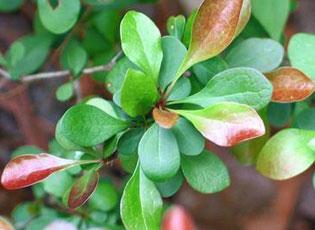Berberis thunbergii DC. (ITIS)
Japanese barberry
Japan (Zouhar 2008)
1875 (DeGasperis et al. 2007)
Introduced as an ornamental and promoted as a replacement for common barberry (Berberis vulgaris), which is a host for black stem rust (Zouhar 2008)
Forms dense stands that compete with native trees and herbaceous plants (Ward et al. 2009)
Eastern and Midwestern U.S.

Japanese barberry, foliage in April
Photo by James H. Miller; USDA, Forest Service
Find more images
Distribution / Maps / Survey Status
All Resources
Selected Resources
The section below contains highly relevant resources for this species, organized by source.
Council or Task Force
Partnership
Federal Government
State and Local Government
DeGasperis, B.G., and G. Motzkin. 2007. Windows of opportunity: historical and ecological controls on Berberis thunbergii invasions. Ecology 88(12):3115-3125.
Integrated Taxonomic Information System. Berberis thunbergii. [Accessed Sep 16, 2023].
Ward, J.S., T.E. Worthley, and S.C. Williams. 2009. Controlling Japanese barberry (Berberis thunbergii DC) in southern New England, USA. Forest Ecology and Management 257(2): 561-566.
Zouhar, K. 2008. Berberis thunbergii. In: Fire Effects Information System. U.S. Department of Agriculture, Forest Service, Rocky Mountain Research Station, Fire Sciences Laboratory.
